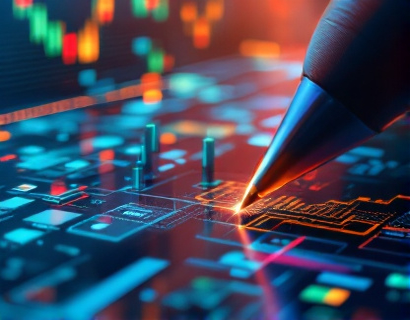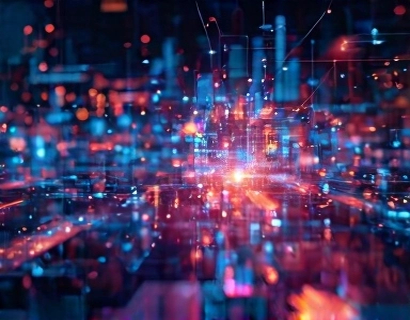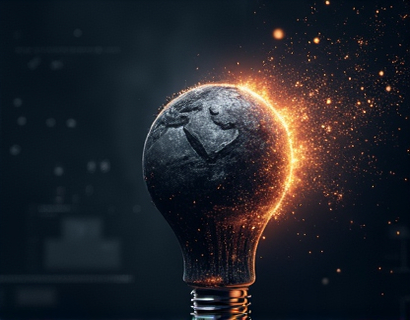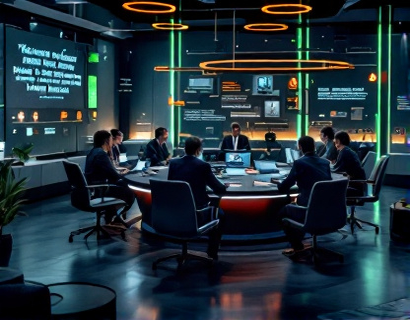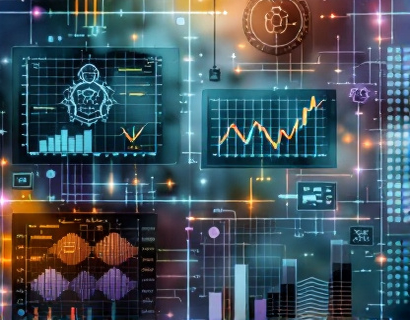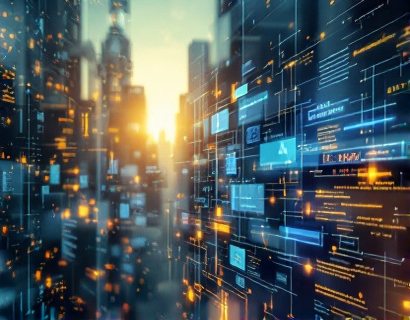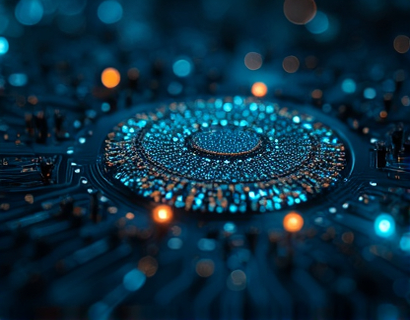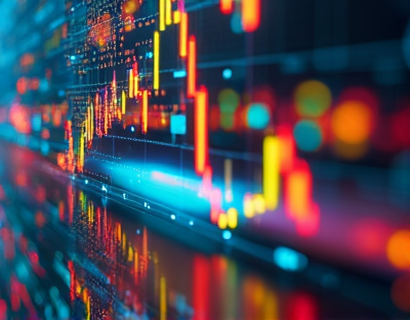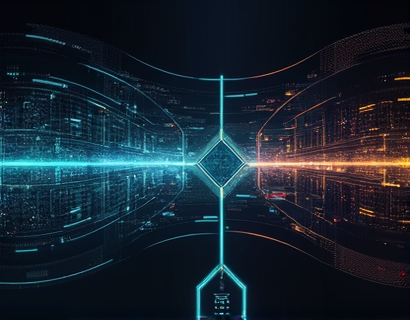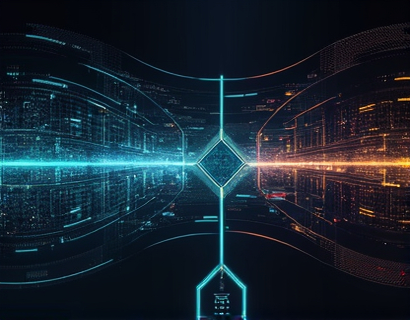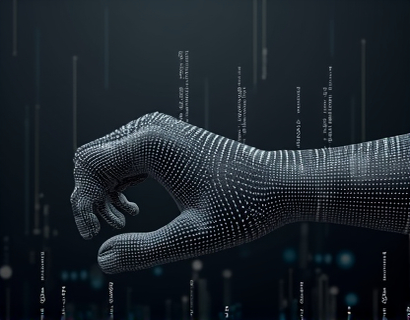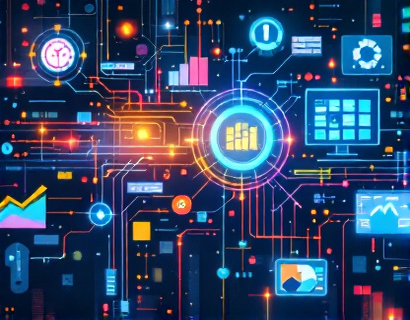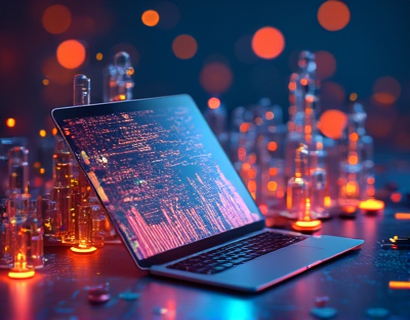Decentralized Innovation: Transforming Digital Experiences with AI and Crypto Integration
The intersection of artificial intelligence and blockchain technology is giving rise to a new era of digital innovation, one that promises to redefine how we interact with online services and platforms. This fusion is not just about combining two powerful technologies; it's about creating a decentralized ecosystem where users have more control, transparency, and security. As tech professionals and enthusiasts, understanding this transformation is crucial for navigating the future of the digital economy.
The traditional centralized models of the internet have been dominated by a few large corporations, often leading to concerns over data privacy, security, and user autonomy. The emergence of decentralized technologies, particularly blockchain, along with the advancements in AI, is challenging these norms. This article delves into how AI and crypto integration are reshaping digital experiences, unlocking new growth opportunities, and fostering a more equitable and secure online environment.
Understanding Decentralization and Its Benefits
Decentralization refers to the distribution of functions, processes, or activities away from a central authority. In the context of digital technologies, this means moving from centralized servers controlled by a single entity to a network of nodes that collectively manage and validate transactions or data. Blockchain technology is the cornerstone of this decentralized approach, providing a transparent, immutable, and secure ledger for recording transactions.
The benefits of decentralization are manifold. Firstly, it enhances security by eliminating single points of failure, making it harder for malicious actors to compromise the system. Secondly, it promotes transparency, as all transactions are recorded on a public ledger that is accessible to everyone. This transparency builds trust among users, as they can verify the integrity of the system independently. Lastly, decentralization empowers users by giving them more control over their data and digital assets, reducing reliance on intermediaries.
AI in the Decentralized Ecosystem
Artificial intelligence, with its ability to process and analyze vast amounts of data, is a natural fit for the decentralized ecosystem. AI can enhance the functionality and efficiency of decentralized applications (dApps) in several ways. For instance, machine learning algorithms can be used to improve user experiences by personalizing content, predicting user behavior, and optimizing resource allocation.
One significant application of AI in decentralized systems is in the realm of smart contracts. Smart contracts are self-executing contracts with the terms of the agreement directly written into code. AI can enhance smart contracts by enabling more complex and dynamic logic, allowing for conditional executions based on real-time data analysis. This can lead to more efficient and reliable automated processes, reducing the need for manual intervention and intermediaries.
Enhancing User Experiences with AI and Crypto
The integration of AI and blockchain technology is not just about backend efficiency; it's also about creating superior user experiences. In a decentralized environment, AI can play a crucial role in making digital interactions more intuitive and seamless. For example, AI-powered chatbots and virtual assistants can provide instant support and guidance, helping users navigate complex decentralized platforms with ease.
Personalization is another area where AI shines. By analyzing user data and preferences, AI can curate personalized content and recommendations, enhancing the overall user experience. This is particularly valuable in decentralized marketplaces and social networks, where users expect a tailored and engaging experience. AI-driven recommendation systems can match users with relevant products, services, or community members, fostering a more connected and valuable ecosystem.
Security and Privacy Enhancements
Security and privacy are paramount in the decentralized ecosystem, and AI can significantly bolster these aspects. AI algorithms can detect and mitigate potential security threats in real-time, identifying anomalies and patterns that indicate malicious activity. This proactive approach to security can help prevent breaches and protect user data more effectively than traditional centralized security measures.
Privacy is another critical concern in decentralized systems, where data is distributed across multiple nodes. AI can assist in implementing advanced encryption techniques and zero-knowledge proofs, ensuring that user data remains confidential while still being usable for legitimate purposes. These technologies allow users to prove certain attributes of their data without revealing the data itself, maintaining privacy and control over their information.
Decentralized Finance (DeFi) and AI
Decentralized Finance (DeFi) is a prime example of how AI and blockchain can converge to transform traditional financial systems. DeFi platforms leverage smart contracts and blockchain to offer a wide range of financial services, from lending and borrowing to trading and asset management, all without intermediaries. AI can enhance DeFi by providing sophisticated risk assessment tools, fraud detection systems, and automated trading bots.
AI-driven predictive analytics can help users make informed decisions by analyzing market trends and providing insights into potential investment opportunities. This can democratize access to financial services, making them more accessible to a broader audience. Additionally, AI can improve the user interface of DeFi platforms, making them more user-friendly and accessible to those who may not have a deep understanding of blockchain technology.
Challenges and Considerations
While the integration of AI and blockchain offers numerous benefits, it also presents several challenges that need to be addressed. One of the primary concerns is the scalability of decentralized systems. As the number of users and transactions grows, ensuring that the network remains efficient and responsive is a significant challenge. AI can help optimize network performance and resource allocation, but it requires careful design and implementation.
Another challenge is the regulatory landscape. The decentralized nature of these technologies often complicates compliance with existing laws and regulations. Striking a balance between innovation and regulation is crucial to ensure that these technologies can thrive while protecting users and maintaining market integrity. AI can assist in navigating this complex landscape by providing tools for regulatory compliance and risk management.
Future Prospects and Opportunities
The future of decentralized innovation, powered by AI and blockchain, is promising. As these technologies continue to mature, we can expect to see more sophisticated and user-friendly applications across various industries. From healthcare and finance to supply chain and entertainment, the potential applications are vast.
For businesses and developers, the key is to embrace this decentralized paradigm and explore how AI can enhance their offerings. By focusing on user-centric design and leveraging the strengths of both AI and blockchain, organizations can create robust, secure, and engaging digital experiences. The decentralized economy is not just a technological shift; it's a cultural and economic revolution that is reshaping the future of the digital world.
In conclusion, the fusion of AI and blockchain is not just a technological trend but a fundamental transformation of how we build and interact with digital systems. By harnessing the power of decentralization and intelligent automation, we can create a more equitable, secure, and efficient digital landscape. As tech professionals and enthusiasts, embracing this change and contributing to its development is essential for shaping the future of technology and society.



